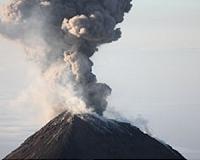| . |  |
. |
Seattle WA (SPX) Feb 17, 2011 While governments debate about potential policies that might curb the emission of greenhouse gases, new University of Washington research shows that the world is already committed to a warmer climate because of emissions that have occurred up to now. There would continue to be warming even if the most stringent policy proposals were adopted, because there still would be some emission of heat-trapping greenhouse gases such as carbon dioxide and methane. But the new research shows that even if all emissions were stopped now, temperatures would remain higher than pre-Industrial Revolution levels because the greenhouse gases already emitted are likely to persist in the atmosphere for thousands of years. In fact, it is possible temperatures would continue to escalate even if all cars, heating and cooling systems and other sources of greenhouse gases were suddenly eliminated, said Kyle Armour, a UW doctoral student in physics. That's because tiny atmospheric particles called aerosols, which tend to counteract the effect of greenhouse warming by reflecting sunlight back into space, would last only a matter of weeks once emissions stopped, while the greenhouse gases would continue on. "The aerosols would wash out quickly and then we would see an abrupt rise in temperatures over several decades," he said. Armour is the lead author of a paper documenting the research, published recently in the journal Geophysical Research Letters. His co-author is Gerard Roe, a UW associate professor of Earth and space sciences. The global temperature is already about 1.5 degrees Fahrenheit higher than it was before the Industrial Revolution, which began around the start of the 19th century. The scientists' calculations took into account the observed warming, as well as the known levels of greenhouse gases and aerosols already emitted to see what might happen if all emissions associated with industrialization suddenly stopped. In the best-case scenario, the global temperature would actually decline, but it would remain about a half-degree F higher than pre-Industrial Revolution levels and probably would not drop to those levels again, Armour said. There also is a possibility temperatures would rise to 3.5 degrees F higher than before the Industrial Revolution, a threshold at which climate scientists say significant climate-related damage begins to occur. Of course it is not realistic to expect all emissions to cease suddenly, and Armour notes that the overall effect of aerosols - particles of sea salt or soot from burning fossil fuels, for example - is perhaps the largest uncertainty in climate research. But uncertainties do not lessen the importance of the findings, he said. The scientists are confident, from the results of equations they used, that some warming would have to occur even if all emissions stopped now. But there are more uncertainties, and thus a lower confidence level, associated with larger temperature increases. Climate models used in Intergovernmental Panel on Climate Change assessments take into consideration a much narrower range of the possible aerosol effects, or "forcings," than are supported by actual climate observations, Armour said. The Nobel Peace Prize-winning panel, sponsored by the United Nations, makes periodic assessments of climate change and is in the process of compiling its next report. As emissions of greenhouse gases continue, the "climate commitment" to a warmer planet only goes up, Armour said. He believes it is helpful for policy makers to understand that level of commitment. It also will be helpful for them to understand that, while some warming is assured, uncertainties in current climate observations - such as the full effect of aerosols - mean the warming could be greater than models suggest. "This is not an argument to say we should keep emitting aerosols," he said. "It is an argument that we should be smart in how we stop emitting. And it's a call to action because we know the warming we are committed to from what we have emitted already and the longer we keep emitting the worse it gets." The paper was published in the Jan. 15 edition of Geophysical Research Letters.
Share This Article With Planet Earth
Related Links University of Washington Climate Science News - Modeling, Mitigation Adaptation
 Man, Volcanoes And The Sun Have Influenced Europe's Climate Over Recent Centuries
Man, Volcanoes And The Sun Have Influenced Europe's Climate Over Recent CenturiesBarcelona, Spain (SPX) Jan 21, 2011 An International research team has discovered that seasonal temperatures in Europe, above all in winter, have been affected over the past 500 years by natural factors such as volcanic eruptions and solar activity, and by human activities such as the emission of greenhouse gases. The study, with Spanish involvement, could help us to better understand the dynamics of climate change. Up until ... read more |
|
| The content herein, unless otherwise known to be public domain, are Copyright 1995-2010 - SpaceDaily. AFP and UPI Wire Stories are copyright Agence France-Presse and United Press International. ESA Portal Reports are copyright European Space Agency. All NASA sourced material is public domain. Additional copyrights may apply in whole or part to other bona fide parties. Advertising does not imply endorsement,agreement or approval of any opinions, statements or information provided by SpaceDaily on any Web page published or hosted by SpaceDaily. Privacy Statement |